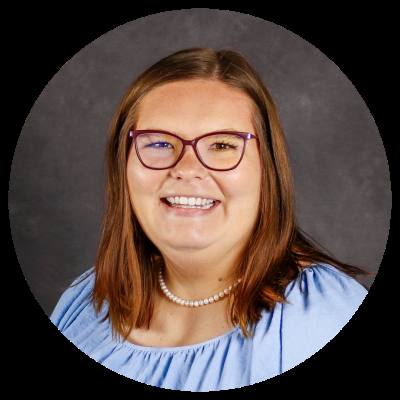HOUSTON
Fort Bend ISD board of trustees, Position 4
* indicates incumbent
Kristin Tassin*
Occupation: Attorney
Experience:Kristin has served on the FBISD Board of Trustees for the past 6 years. She has served as Board President (2016-18), Board Secretary (2015-16), Legislative Liaison (2015-present), Communications Liaison (2019-present), and as a member of the Internal Audit Committee, Vision & Planning Committee, and Governance Committee. For her work in public education, Kristin was awarded the Hero for Children Award by Pastors for Texas Children in 2018 and was selected as a Top 30 Influential Women of Houston in 2017. In 2017 and 2018, while Kristin was Board President, FBISD was awarded H-E-B Outstanding School Board in Texas and H-E-B Outstanding Large District in Texas.In 2017, Kristin was appointed by Governor Greg Abbott to the Special Education Continuing Advisory Committee. Kristin has helped draft, support and advocate for several bipartisan legislative bills supporting public education and students with disabilities over the past three Texas legislative sessions. She has also chaired the Education Committee for State Representative Rick Miller.Kristin is an attorney practicing Intellectual Property Law for 18 years and Special Education Law for over 15 years. She is co-founder of a charitable organization called “Father’s Joy” that has supported children with disabilities and their families for over 12 years.
Contact: www.kristintassin.com
What is the biggest challenge facing Fort Bend ISD, and how would you address it?
KT: Currently, the uniqueness and difficulties of dealing with a nation-wide pandemic is our biggest challenge. We opened school online to protect students and staff but also to build an effective and rigorous online learning model. This has been successful because of our foresight in implementing Schoology, the platform that supports online learning. This makes us one of the most prepared districts in the state and will help with future emergencies and potentially relieving over-utilized schools. Focus must always be on student achievement. FBISD currently has zero failing schools due to programs we’ve implemented. Priorities must continue to be literacy, [gifted and talented], [career and technical education] and special education.
How should the district manage its response to the coronavirus pandemic and plan to reopen schools for face-to-face learning?
KT: Coronavirus presents unique challenges making it difficult to implement plans that meet the needs and desires of every family. Safety should always be a priority while allowing choice for students. I believe a phased-in approach to face-to-face learning for families who choose this is appropriate. Online learning should continue to be an option as long as it is needed. Also, staff safety is critical. Appropriate [personal protective equipment] should be provided, while allowing staff who have pre-existing conditions to remain online. Teacher and campus-level input and flexibility in the plan should be priorities since scheduling will be a challenge.
How should the district plan for and think about future population growth in order to best utilize existing and future campuses?
KT: Trustees must receive updates from demographic experts, review monthly enrollment and engage developers to understand planned development. I don’t believe busing students to under-utilized campuses is best for any student. There are ways to use existing under-utilized campuses by bringing in programs of choice that support student learning and success. This has been successful and led to zero failing schools in FBISD. I believe online learning as a choice for high school students can help manage school utilization. We must balance between using existing campuses, listening to community feedback and providing community schools in areas where excessive growth is happening.
Do you see the need for FBISD to call a bond in the next year? Why or why not?
KT: Based on the information provided last school year, FBISD will need to call a bond election in 2021. However, this may change as a result of the pandemic slowing growth in some areas. Updated data will be presented in the spring. As a trustee, I have reduced property taxes while raising teacher pay and investing in schools. We have managed bond funds that saved taxpayers about $11 million over six years and maintained AA+ rating with Moody’s and Standard & Poor’s. I will continue to be fiscally conservative, spending money purposefully on students, teachers and programs that support student achievement and offer more choice.

Shirley Rose-Gilliam
Occupation: Education Consultant—Leadership Coach
Experience: Educator 32 years, 22 years campus administrator, 10 years teacher
Contact: www.vote4shirleyrose.com
What is the biggest challenge facing Fort Bend ISD, and how would you address it?
SRG: [There’s a lack of] honesty and trust; solid instruction in this decade; good first-time teaching; and systems in place to monitor and adjust. Many of these programs we “plug in” to fix a problem, and then later find ourselves explaining why it didn’t work rather than celebrating why it did. One solution [is to] talk to our front line defense—teachers and principals—[and] assess how we do things at the district level and how it actually works on campus. [We need to] take time to hear concerns and research the programs that have proven successful as it pertains to student achievement and growth.
How should the district manage its response to the coronavirus pandemic and plan to reopen schools for face-to-face learning?
SRG: Plan [using] guidance from health officials, provide protocol for campuses [and] meet with campus leaders [to] in turn provide information for staff and keep parents informed. Communication is key and we must keep teachers and parents in the loop. Implement the plan of phase in, as well as practice safety protocols with campus personnel [so that] campus personnel [can] team together to teach students. Be consistent. There are a lot of moving parts. We must be intentional and address concerns immediately. Monitor daily to be sure we are following the plan with fidelity. As we navigate into instruction, minimize cross entity teaching to allow time for transition.
How should the district plan for and think about future population growth in order to best utilize existing and future campuses?
SRG: I really don’t know the answer to this question because it has been an issue for the board for the past 20 years, and we are still trying to get it right. So, first, review research on population growth of FBISD [in] 2020. Listen, share concerns, and be honest and transparent with discussions. Second, consult employees at those “existing campuses” and seek input. Our campus personnel can provide invaluable insight as to perception of the community.
Do you see the need for FBISD to call a bond in the next year? Why or why not?
SRG: As a new board member, I will assess the need for another bond as well as speak with taxpayers, parents, teachers and other staff members. Before answering a yes or no question, I want to review past bonds. Have we completed all construction of facilities from the last bond? Have we evaluated implementation of programs from the last bond? Why or why not? [We need to] perform a needs assessment and present [it] to the FBISD community.





